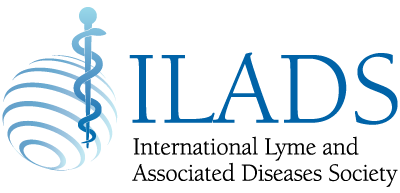Acupuncture
 Acupuncture, one of the main forms of therapy in traditional Chinese medicine (TCM), has been practiced for at least 2,500 years. In acupuncture, certain points on the body are stimulated by the insertion of fine needles. Unlike the hollow hypodermic needles used in mainstream medicine to give injections or to draw blood, acupuncture needles are solid and extremely smaller in diameter.
Acupuncture, one of the main forms of therapy in traditional Chinese medicine (TCM), has been practiced for at least 2,500 years. In acupuncture, certain points on the body are stimulated by the insertion of fine needles. Unlike the hollow hypodermic needles used in mainstream medicine to give injections or to draw blood, acupuncture needles are solid and extremely smaller in diameter.
According to TCM, energy (or Qi) moves through the body along 14 main pathways, called meridians. Each meridian corresponds to a different organ system and emotion. It is believed that imbalances in Qi are the root of disease. When the flow of Qi along one or several of the meridians is obstructed, an imbalance occurs in the rest of the body and the result may be disease or injury. By stimulating key points in the body, acupuncture seeks to restore balance to the normal energy flow and, consequently, to relieve pain or treat disease. Disease doesn’t exist where Qi flows smoothly and evenly.
It is well documented that the stimulation of acupuncture points affects both central and peripheral nervous systems. It also triggers the release of endorphins and enkephalins, chemicals that have pain-relieving properties similar to those of opiates.
The exact mechanism by which acupuncture works is not known, but studies have demonstrated a variety of physiologic effects, such as release in the brain of various chemicals and hormones, and alteration of immune function, blood pressure, and body temperature.
Patients generally complain of little or no discomfort from the needles.
To book an appointment for acupuncture click here.
Botanical Medicine
 Botanical medicines, when administered properly and in designated therapeutic dosages, can be effective, trigger fewer side effects for most patients than pharmaceutical drugs, and are generally less costly than prescription pharmaceutical drugs.
Botanical medicines, when administered properly and in designated therapeutic dosages, can be effective, trigger fewer side effects for most patients than pharmaceutical drugs, and are generally less costly than prescription pharmaceutical drugs.
The benefits of botanical medicine may be subtle or dramatic, depending on the remedy used and the illness being addressed. Herbal remedies usually have a much slower effect than pharmaceutical drugs. Some herbal remedies have a cumulative effect and work slowly over time to restore balance; others are indicated for short-term treatment of acute symptoms. Botanical medicine may be especially beneficial when administered to help with ongoing chronic symptoms.
Botanical treatments are generally accepted as part of mainstream medical treatment around the world, except in the United States, where herbal remedies are sold as dietary supplements. As of 2003, the branch of the FDA that regulates botanical products under the rubric of dietary supplements is the Center for Food Safety and Applied Nutrition (CFSAN). Under the Dietary Supplement Health and Education Act of 1994 (DSHEA), the manufacturer of a botanical preparation is responsible for ensuring that it is safe before marketing it; the FDA is responsible for taking legal action if the product proves to be unsafe after it is marketed. The other government agency that has some oversight over botanical preparations in the U.S. is the National Center for Complementary and Alternative Medicine (NCCAM) of the National Institutes of Health, established by an act of Congress in 1998. NCCAM also supports research into botanical products, herbalism, and other alternative therapies that make use of plant-derived products.
For this reason, Dr. Hinchey only recommends and use supplements and botanical medicines that undergo rigorous third-party laboratory testing for quality control and are sold only to licensed physicians.
Therapeutic Massage
 The practice of kneading, or manipulating, a person’s muscles and other soft tissue with the intent of improving a person’s well-being or health, for stress reduction, detoxification, and many other health benefits. Find more information here.
The practice of kneading, or manipulating, a person’s muscles and other soft tissue with the intent of improving a person’s well-being or health, for stress reduction, detoxification, and many other health benefits. Find more information here.
Nutritional Counseling
 Nutritional deficiencies rob the body of its own natural resources and can manifest as symptoms, such as fatigue, mood swings, and insomnia. Many times, these symptoms are taken for granted as a natural sign of aging. When left unchecked, however, these same deficiencies can contribute to such diseases as arteriosclerosis, high blood pressure, diabetes, and arthritis.
Nutritional deficiencies rob the body of its own natural resources and can manifest as symptoms, such as fatigue, mood swings, and insomnia. Many times, these symptoms are taken for granted as a natural sign of aging. When left unchecked, however, these same deficiencies can contribute to such diseases as arteriosclerosis, high blood pressure, diabetes, and arthritis.
Scientists now recognize that even mild nutritional deficiencies can create subtle symptoms of disease. It has been found that through detoxification, dietary improvements, and nutritional supplementation, the signs of deficiency can be eased, thus alleviating the sub-clinical symptoms being experienced.
For more detailed information on targeted functional medicine nutrition services, or to book an appointment click here.


